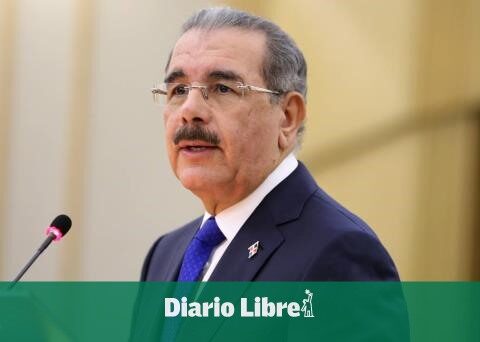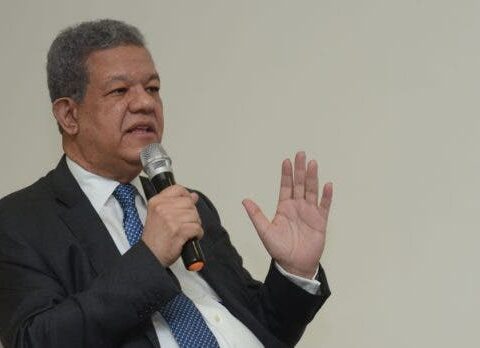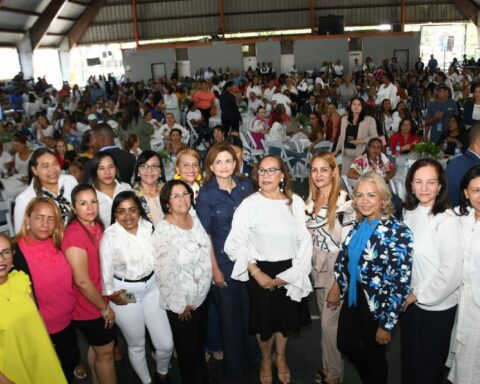The Modern Revolutionary Party (PRM) made a proposal for amendment to the Constitution of the Republic, which among other points restates the composition of the National Council of the Judiciarythe unification of the elections, the elimination of the electoral drag and the form and time in which the members of the High Courts will be elected.
The proposal that was submitted by the Legal Consultant of the Executive Power, Antoliano Peralta, to the Economic and Social Council for discussion, expands on the proposal that President Luis Abinader had previously deposited in that body.
This proposal establishes that henceforth the Attorney General of the Republic, which will be called the Attorney General of the Republic, will not form part of the National Council of the Judiciary.
In addition, they propose removing the responsibility for “the formulation and implementation of the State policy against crime” and assigning it the responsibility of formulating and implementing the policy of persecution against crime. And, establish a law reserve for the regulation of its functions.
They also propose to eliminate paragraph II of article 169, which establishes the functions of the Public Ministry, which says that “the law will regulate the operation of the prison system under the direction of the Public Ministry or another body that is established for that purpose.”
About him National Council of the Judiciary The government party proposes to adapt its operation by withdrawing the function of “evaluating the performance of the judges of the Supreme Court of Justice” and attributing to it the function of removing from office any person whose appointment is within its competence, in the event of misconduct. serious in the performance of their duties.
In addition, enable the possibility of attributing additional functions to it by law and establish that it will meet ordinarily every three years to fulfill its functions and extraordinarily as many times as necessary, after the call of the President of the National Council of the Judiciary or, failing that, of all the representatives of the Legislative Power before it.
Another proposal is that the judges of the Constitutional Court, the Supreme Court of Justice, and the Superior Electoral Court be elected by the CNM for a single period of nine years, and only those judges who have served as substitutes may be re-elected. position for a period of less than five years; the composition of these courts will be gradually renewed every three years.
The president of each of these courts will be elected, from among the judges who remain in each court, for a single period of three years.
Among the requirements to be part of any of these courts is that during the five years prior to their appointment, the person has not been registered in a political party or has carried out political proselytizing activities in a notorious, recognized and constant manner, without detriment to other requirements established by law.
These same requirements are proposed to be applied for the election of the members of the Chamber of Accounts.
unify elections
Another of the important articles that was submitted to modification is 209, capital part, with the purpose of unifying the holding of presidential, congressional, parliamentary elections of international and municipal organizations on the third Sunday of May every four years.
And article 209, numeral II, with the purpose of prohibiting electoral dragging at all voting levels.
Suggest a twenty-first transitory provision, with the purpose of providing that, by exception to the provisions of article 209 of the Constitution, the electoral assemblies of the year 2024 will be held separately and independently, on the third Sunday of February, the municipal ones; and on the third Sunday of May, the presidential, legislative and parliamentary meetings of international organizations.
In addition, that the current municipal authorities conclude their mandate on April 24, 2024, the date on which the authorities that are elected in the 2024 elections will take office.
Other transitory provision establishes that until a special law establishes the form of election of the Attorney General of the Republic, he will be appointed, along with half of his deputies, by decree by the President of the Republic.
The PRM also proposes adding powers to the Comptroller General’s Office, including examining the general and particular accounts of the Executive Branch; submit to the President of the Republic the reports on the control of the assets of the EP; audit and analyze the execution that the Executive Branch makes of the General State Budget and submit a report no later than April 30 of the following year; and carry out special investigations at the request of the Chamber of Accounts, one or both legislative chambers.








